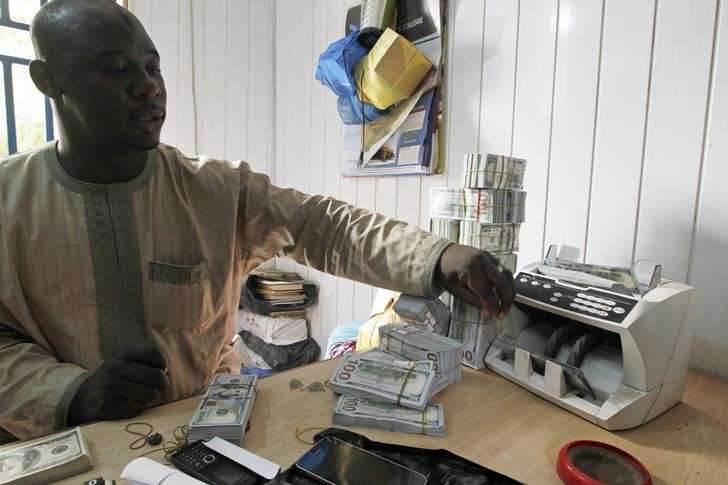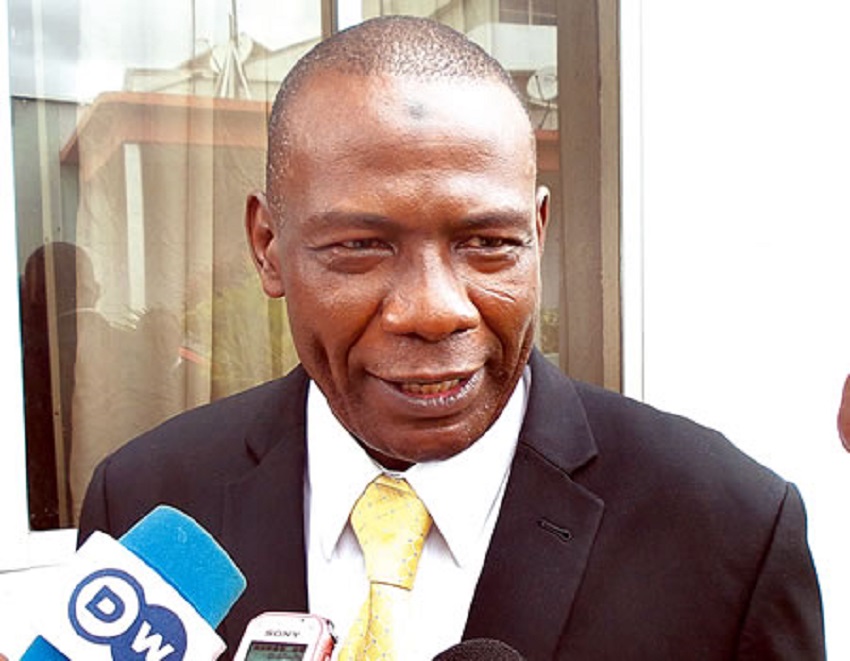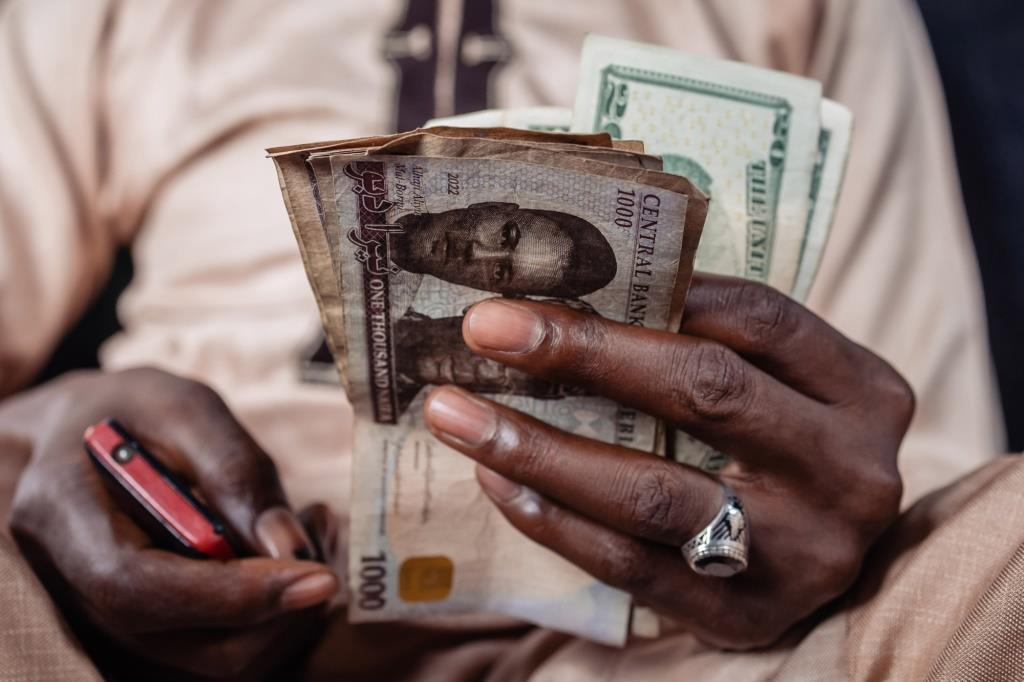Economy
BDC Operators Blame CBN for Increase in Prices of Food, Others
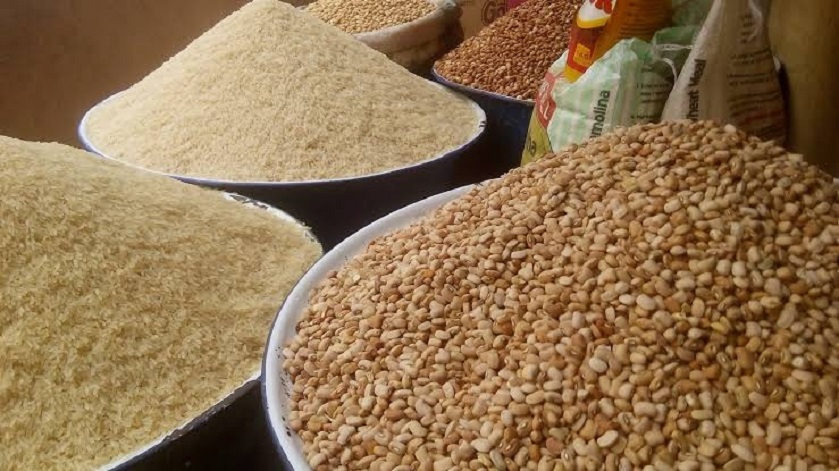
By Aduragbemi Omiyale
In the past months, the prices of food items, products and services in the country have been on the rise despite the National Bureau of Statistics (NBS) saying the inflation rate was moderating.
For most consumers, when they go to the market today, they are not sure the prices of items would remain the same tomorrow and this has been very frustrating for them.
Many have wondered how long they would have to experience this situation but it seems the Bureaux De Change (BDC) operators know the major cause of the problem and like the popular saying, when an issue is known, solving it is not far away.
Recently, the president of the Association of Bureau De Change Operators of Nigeria (ABCON), Mr Aminu Gwadabe, informed Daily Trust in an interview that the Central Bank of Nigeria (CBN) is the brain behind all these problems.
He said the decision of the apex bank to ban the sale of foreign exchange (FX) to his members in July 2021 is what is pushing the prices of goods and services in the country higher.
Mr Gwadabe said the central bank must see street forex traders as an important part of the market and the economy at large, emphasising that things were still better before the July 27, 2021, directive.
“The impacts of the CBN action include direct job losses of about 40,000 employees and over N200 billion capital to go toxic,” the ABCON leader informed the newspaper.
He stressed that the action of the apex bank paved the way for the “dominance of un-official online and Hawala activities.
“Dearth of BDCs expertise developed over the years, increased volatility and confidence crises of the naira, security concerns and increase in prices of goods and services.
“In all the BDCs remained the potent tool for CBN exchange rate stability instruments and accessibility.”
Business Post recalls that nearly two months ago, the Governor of the CBN, Mr Godwin Emefiele, while addressing newsmen after the Monetary Policy Committee (MPC) meeting in Abuja, said the bank would discontinue FX sales to BDCs over alleged round-tripping.
He said the operators were wasting the allocation to them, lamenting that the sale of $20,000 weekly to each of the over 5,500 BDC operators in the country taking a huge toll on the nation’s forex reserves. It was learned that in a year, the country was selling about $5.72 billion to the parallel side of the FX market in a bid to defend the Naira.
Since this policy commenced, the value of the local currency against the Dollar at the unregulated segment of the market has broadly nosedived. It traded on Monday at N532 to $1.
Economy
All-Share Index Rallies 0.25% as Seplat, Others Lead Gainers’ Chart
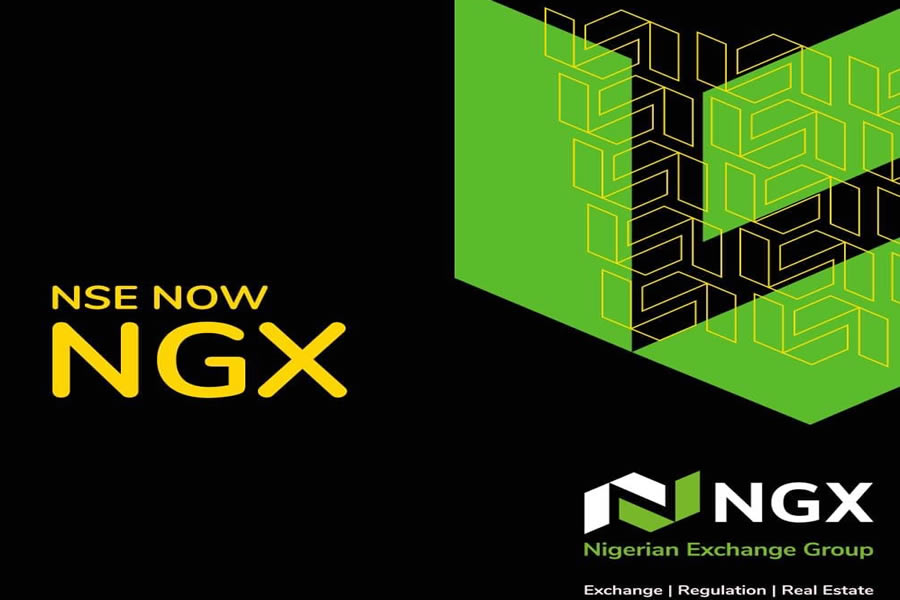
By Dipo Olowookere
The Nigerian Exchange (NGX) Limited almost succumbed to profit-taking on Thursday, but for Seplat, which pulled its string to salvage the situation.
Seplat triggered a buying interest in its shares after informing the investing public of its intention to release its full-year results for 2025 on February 26, 2026.
It almost singlehandedly lifted the energy index by 4.64 per cent yesterday. This sector was the only one of the five with green at the close of business.
The others were in red, with the insurance space down by 1.47 per cent, the industrial goods segment went down by 1.09 per cent, the banking index closed lower by 0.13 per cent, and the consumer goods sector shrank 0.04 per cent.
Analysis showed that the All-Share Index (ASI) soared on Thursday by 441.28 points to 178,625.63 points from 178,184.35 points, and the market capitalisation grew by N283 billion to N114.660 trillion from N114.377 trillion.
Business Post reports that 46 equities were in green during the session and 35 equities ended in red, implying a positive market breadth index and bullish investor sentiment.
The trio of Deap Capital, RT Briscoe, and Seplat gained 10.00 per cent each to settle at N8.69, N15.84, and N8,107.00 apiece, while Zichis rose by 9.97 per cent to N9.82, with ABC Transport surging by 9.91 per cent to N7.43.
On the flip side, NAHCO lost 9.98 per cent to trade at N148.45, Abbey Mortgage Bank depressed by 9.68 per cent to N11.20, Eterna gave up 9.50 per cent to close at N30.00, May and Baker depreciated by 9.19 per cent to N40.50, and Ecobank weakened by 8.72 per cent to N45.00.
Access Holdings was the most active stock yesterday with 52.1 million units sold for N1.3 billion, Zenith Bank exchanged 42.5 million units worth N3.3 billion, Tantalizers transacted 42.1 million units valued at N253.9 million, GTCO traded 40.8 million units worth N4.3 billion, and Deap Capital transacted 34.4 million units valued at N298.1 million.
When the closing gong was struck by 2:30 pm to signify the end of trading activity, investors had bought and sold 698.3 million shares worth N28.4 billion in 50,886 deals compared with 939.2 million shares valued at N34.0 billion exchanged in 61,279 deals a day earlier.
This showed that yesterday, the trading volume, value, and number of deals decreased by 25.65 per cent, 16.47 per cent, and 16.96 per cent, respectively.
Economy
Naira Corrects to N1,353/$1 at Official Market
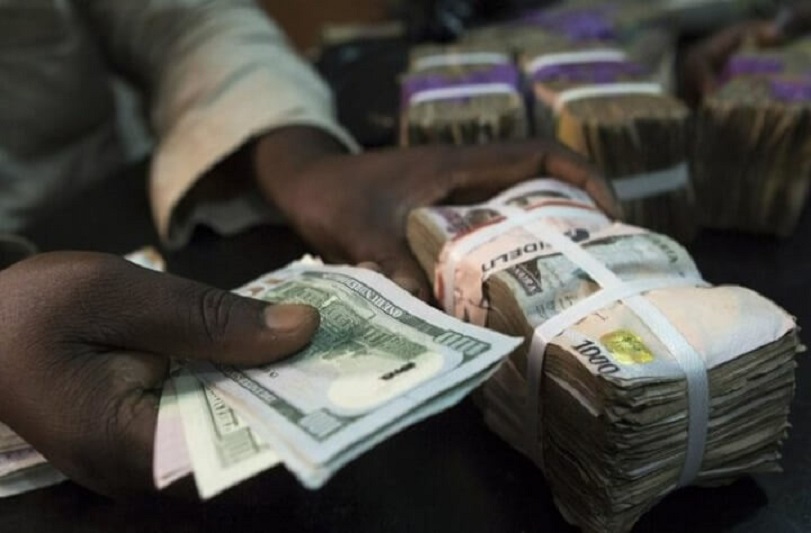
By Adedapo Adesanya
The Naira depreciated against the United States Dollar by N4.71 or 0.35 per cent in the Nigerian Autonomous Foreign Exchange Market (NAFEX) on Thursday, February 12, to N1,353.66/$1 from the N1,348.95/$1 it was traded on Wednesday.
Similarly, it weakened against the Pound Sterling in the same market segment by N9.53 to settle at N1,849.64/£1 versus the previous day’s N1,840.11/£1 and lost N8.55 against the Euro to close at N1,608.68/€1 compared with the N1,600.13/€1 it was exchanged at midweek.
Also, at the GTBank FX section, the Nigerian Naira suffered a N1 loss against the US Dollar yesterday to quote at N1,359/$1, in contrast to Wednesday’s price of N1,358/$1, but closed flat in the parallel market at N1,430/$1.
The pullback witnessed by the Nigerian currency at the currency market on Thursday came as the market corrected from recent gains, with a further boost coming as the Central Bank of Nigeria (CBN) said all duly licensed Bureaux De Change (BDC) operators are permitted to purchase foreign exchange from the Nigerian FX market through any authorised dealer bank of their choice at prevailing market rates.
The move follows the apex bank confirmation in September 2025 that 82 BDC operators had been fully licensed under its revised regulatory framework, with operations commencing on November 27, 2025, as part of reforms aimed at formalising retail foreign exchange supply.
According to Mr Aminu Gwadabe, president of the Association of Bureaux De Change Operators of Nigeria (ABCON), there are expectations that the CBN’s move will help the Naira-US Dollar exchange value.
He noted that BDC operators have started approaching their banks to understand the operational modalities and framework for accessing dollars.
“We expect before the close of the week a comprehensive take-off of operations,” he added.
In the cryptocurrency market, Bitcoin has mostly erased its bounce from last week’s crypto crash, returning to the $66,000 area. It tumbled by 1.9 per cent to $66,161.78 yesterday.
The sell-off in digital assets tracked a broader pullback in the tech sector, particularly in the software names with which Bitcoin has been so strongly correlated.
Solana (SOL) dropped 2.4 per cent to sell for $77.68, Ripple (XRP) dipped 0.7 per cent to $1.36, and Ethereum (ETH) went down by 0.6 per cent to $1,938.96.
However, Cardano (ADA) added 1.7 per cent to trade at $0.2612, Dogecoin (DOGE) grew by 1.4 per cent to $0.0923, Litecoin (LTC) expanded by 0.6 per cent to $52.69, and Binance Coin (BNB) jumped 1.2 per cent to $610.55, while the US Dollar Tether (USDT) and the US Dollar Coin (USDC) closed flat at $1.00 each.
Economy
Crude Oil Market Falls on IEA Supply, Demand Forecast

By Adedapo Adesanya
The crude oil market dropped on Thursday due to falling demand, retreating fears of renewed Middle East conflict and expected increases in supply.
Brent crude traded at $67.52 a barrel after going down by $1.88 or 2.71 per cent, while the US West Texas Intermediate (WTI) crude finished at $62.84 a barrel, down $1.79 or 2.77 per cent.
The International Energy Agency (IEA) cut its demand growth outlook, a revision that landed in a market already uneasy about how quickly supply is said to be rising.
Selling accelerated after the Paris-based agency trimmed its 2026 global demand growth forecast to 850,000 barrels per day. A month ago, it was expecting 930,000 barrels per day.
The agency still sees global supply expanding by about 2.4 million barrels per day this year. The balance between supply and demand looks heavy, especially once winter disruptions unwind.
January tightened the market for a moment. Storms shut in more than 1 million barrels per day in North America. Kazakhstan, Russia, and Venezuela were dealing with outages of their own. Global supply fell by roughly 1.2 million barrels per day, but it appears that those barrels are now starting to return.
On its part, the Organisation of the Petroleum Exporting Countries (OPEC) is projecting much stronger demand growth, above 1.4 million barrels per day.
Crude oil production from the OPEC+ alliance slumped by as much as 439,000 barrels per day in January compared to December as a major supply disruption in Kazakhstan added to lower output from Iran and Venezuela, OPEC data showed in its Monthly Oil Market Report (MOMR).
The unplanned outages and lower production could ease to some extent the fears of oversupply that have been weighing on oil prices.
On the geopolitical front, Prime Minister of Israel, Mr Benjamin Netanyahu, said as he was departing the US, noting that President Donald Trump appeared to be framing a resolution to the conflict with Iran over nuclear weapons.
On Wednesday, the American President said after talks with PM Netanyahu that they had yet to reach a definitive agreement on how to move forward with Iran, but that negotiations with Tehran would continue.
Earlier this week, President Trump said on Tuesday that he was considering sending a second aircraft carrier to the Middle East if a deal is not reached with Iran. The date and venue of the next round of talks have yet to be announced.
-

 Feature/OPED6 years ago
Feature/OPED6 years agoDavos was Different this year
-
Travel/Tourism10 years ago
Lagos Seals Western Lodge Hotel In Ikorodu
-

 Showbiz3 years ago
Showbiz3 years agoEstranged Lover Releases Videos of Empress Njamah Bathing
-

 Banking8 years ago
Banking8 years agoSort Codes of GTBank Branches in Nigeria
-

 Economy3 years ago
Economy3 years agoSubsidy Removal: CNG at N130 Per Litre Cheaper Than Petrol—IPMAN
-

 Banking3 years ago
Banking3 years agoSort Codes of UBA Branches in Nigeria
-

 Banking3 years ago
Banking3 years agoFirst Bank Announces Planned Downtime
-

 Sports3 years ago
Sports3 years agoHighest Paid Nigerian Footballer – How Much Do Nigerian Footballers Earn



